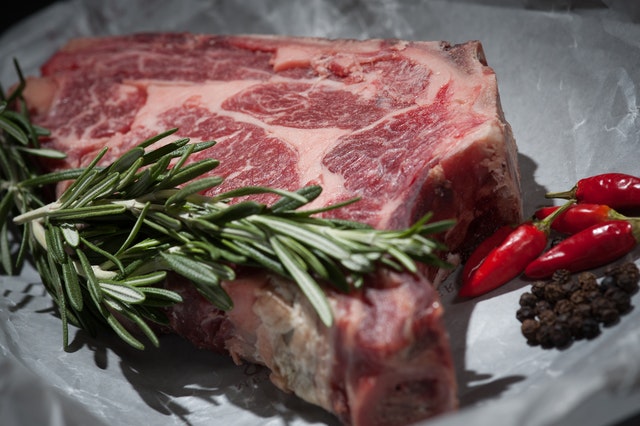How the gastric sleeve changes your taste buds
Surprisingly, food flavors change after bariatric surgery, including gastric sleeve. You may find foods that you thought were appealing are, post-surgery, kind of gross. Most people first notice this after surgery when the protein drinks they once enjoyed now taste bad. Bariatric surgery can change the taste of a lot of foods that you like—for the worse.
You might find that a food’s flavors become either stronger or weaker. A banana might taste too sweet or a potato might taste bad or rancid. In one study about taste change and bariatric surgery, 73 percent of the participants reported either a significant change in the taste of foods. The most frequently reported change was in the taste of meat.[4] Sweet and salty flavors also have a significant change as well.
These were often reported as tasting substantially more intense than they did before surgery, according to the study. Although this change in your palate may seem unsettling, it’s actually good news. Because the trend shows that people who experience the biggest shift in taste tend to lose more weight [5 ]. It’s for this reason that many nutritionists recommend that you don’t stock up on protein drinks, powders, or bars before surgery. What tasted great before you went into the operating room may seem repulsive once you’ve gone home from the hospital. I know many of my clients end up donating or selling large amounts of protein drinks and powders due to their change in taste post-op.
Why does this taste change happen?
There is compelling evidence that obesity changes how you perceive food flavors. There is evidence that a larger body mass index (BMI) corresponds to a decrease in the perception of food’s flavor.[6]
This decrease in flavor applies universally. Fatty foods taste less fatty, sweet foods taste less sweet, sour foods less sour. This is one reason that obesity is a difficult problem to solve. If it’s the flavor of foods that you desire (and most of us do), then you’ll find that as your BMI increases, so will your desire for more fatty, sugary, and sour flavors. More intense flavors make up for the decreased flavor perception.

Fatty foods taste less fatty, sweet foods taste less sweet, sour foods less sour.
How bariatric surgery changes your love of food.
Many studies show that peoples’ flavor preferences change after bariatric surgery. One study showed that a preference in the concentration of sweet flavors changed dramatically after surgery. One study showed that participants found that a satisfying level of sweetness dropped as much as 50% from pre-surgery levels [7 ,4]. The changes in flavor satisfaction are also seen in concentrations of fatty flavors, with a increase in the flavor intensity of fatty foods in Roux-en-Y gastric bypass patients.[4]
These changes in flavor tolerance resulted from two physiological changes that follow bariatric surgery. One is your sense of smell, and the other is a change in your hormonal response to food and feelings of satiety.
The Smell Factor.
The higher your BMI, the poorer your ability to taste food through smell. When it comes to how appealing you find food, taste and smell play equivalent roles. As you eat or drink, your body releases hormones to help you taste and smell the food, adding to the pleasure of eating. These are the same hormones that affect your overall hunger level.

As the weight comes off after surgery, many people find an increase in their sensitivity to smells
In an obese person, these hormones become muted, especially when it comes to smell. As your BMI increases, your sensitivity to smells decreases[8], in turn decreasing your overall enjoyment of food. As the weight comes off after surgery, many people find an increase in their sensitivity to smells. It takes about six months after surgery for your olfactory sense to return to baseline (i.e., the level of someone who has never been obese). What you may notice over the course of a few months post surgery is that certain smells that didn’t affect you much before the surgery start to become much stronger, and maybe even too strong for you to handle. Knowing that this may be the case, you may want to avoid cooking any strong-smelling foods for a while after surgery to avoid any ill effects that may come with those smells.
Hormonal changes after surgery and how they can change your tastes.
Your gut secretes hundreds of hormones in response to eating. These hormones not only help in the digestive response (which cause more hormones to be secreted), but they also enter the bloodstream, traveling to the brain where they have a profound effect on appetite, hunger, and satiety. Two of these hormones, GLP-1 and ghrelin, have been well studied, and researchers have determined they have a big effect on taste perception.
Bariatric surgery is show to affect GLP-1 and ghrelin. GLP-1 is a hormone that promotes the secretion of insulin.[9] With bariatric surgery, there is a large increase in this hormone, up to 10 times the concentration as compared to before surgery. This increase in GLP-1 has been attributed to the reduction, remission, or complete reversal of many bariatric surgery patients’ type 2 diabetes.[10] In a nutshell, GLP-1 is able to make your body’s cells more responsive to insulin, causing your cells to more readily take up blood glucose and thereby lowering the level of glucose in your blood.
So how does this hormone affect taste? GLP-1 is produced not only in the gut but also in the taste cells[10] and therefore has a significant role in taste sensitivity. As the concentration of GLP-1 increases, it follows that your sensitivity to flavors will increase accordingly. With a larger concentration of this hormone running through your body post-op, it’s no surprise that how you taste foods will change drastically.
The second hormone affected by bariatric surgery is ghrelin.
Its main function is to make you hungry. Ghrelin is slowly secreted after meals, building to a concentration that signals you to eat. Only after you have eaten, producing the hormone leptin (the “I’m full” hormone) does ghrelin reduce its concentration.[12] The more ghrelin circulating, the more your hunger level increases. It’s mostly produced in your stomach and intestines, and like the GLP-1 hormone, ghrelin is also produced in your taste cells.[13] Ghrelin’s effect on taste is still being studied, as is the change that bariatric surgery makes to this hormone. Preliminary results, however, show that reduction in ghrelin will have an effect on food flavors after bariatric surgery.
As you can see, it’s not just the size of your stomach that will be changing post-op; the way it functions and the foods you may be drawn to will change too!
Read Next: Can you stretch your stomach after gastric sleeve?
Subscribe To My Bariatric Journey Newsletter
Each month we take on a new topic around Exercise, Nutrition and Mindset and how it can help you on your weight loss journey. You will also get first notice of upcoming promotions.
Geof has been working with bariatric surgery clients for over a decade. His goal with Coaching For Bariatric Success is to give you the tools to make your weight loss successful for the long term.